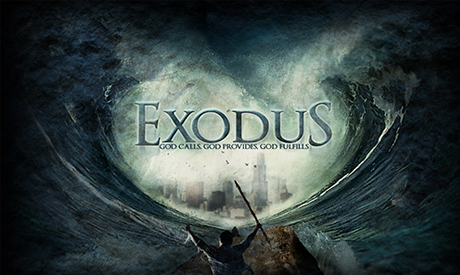The Minister of Culture has banned the film, saying that it inaccurately portrays Jews as the builders of the pyramids

Egypt has banned the screening of biblical Epic "Exodus: Gods and Kings" from playing in cinemas because it includes "historical inaccuracies" and propagates a "zionist," point of view, according to statements from Egypt's culture minister, Gaber Asfour.
The decision to ban the Hollywood blockbuster directed by Ridley Scott was taken by the culture minister without interference from Al-Azhar Institution, Egypt's largest Islamic institution, Asfour told .
"The film is Zionist one, it shows history from a Zionist point of view and falsifies historical fact and this is why it was officially banned in Egypt," Asfour said.
The culture minister said that the film depicted biblical figure Moses and the Jews as the builders of the pyramids in Ancient Egypt, which is inaccurate according to historical fact.
Egyptologists maintain that the pyramids were built by Egyptians during the old and middle kingdom periods.
Despite the fact that biblical figure Moses is revered by Jews, Christians and Muslims alike with the story of the Jewish exodus being documented in the Torah, Bible and Quran, this event is absent from Egyptian history.
In 1998, Egypt banned animated film, "The Prince of Egypt" for the same reasons.
Sheikh Yahia El-Kassabny, the assistant head sheikh of Al-Azhar, Ahmed El-Tayeb told that no one had asked for Al-Azhar's opinion about the film starring American actors Christian Bale and Sigourney weaver.
Usually films depicting the lives of religious figures like prophets are rejected by Al-Azhar as Islamic teachings ban the depictions of Prophets whether on screen or on stage.
The censorship board had previously allowed the screening of the "Passion of Christ" in 2004 and "Noah" in 2014 despite objections of Al-Azhar and Egypt’s Coptic Church.

No comments:
Post a Comment
Note: Only a member of this blog may post a comment.